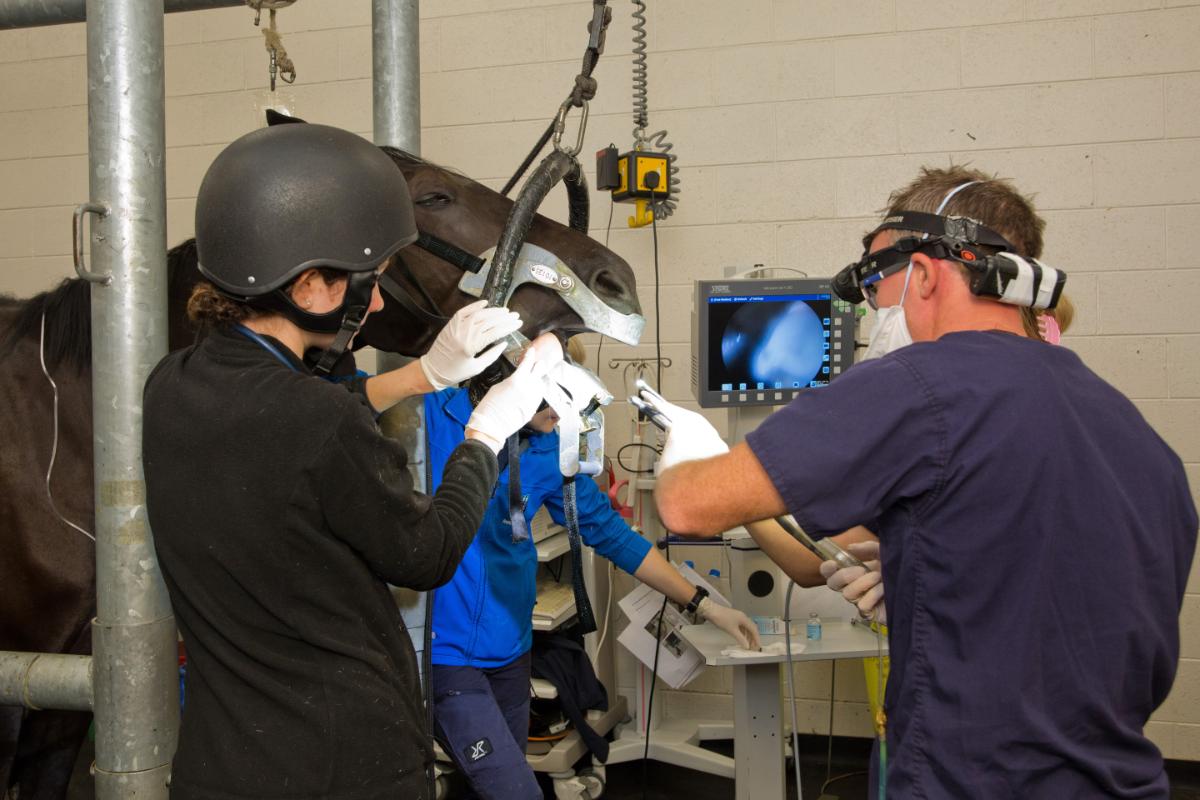All of the academic clinicians of the UCDVH Equine Surgery Service are board-certified by the European (ECVS) and/or American College of Veterinary Surgeons (ACVS). In order to become board-certified, a veterinarian must graduate from an accredited college of veterinary medicine, perform an internship (one year of general equine experience), and an approved residency (a minimum of 3 years of specific equine surgical training). Finally, board certification requires successfully passing an intensive 3-day written, practical, and oral examination.
Why might my horse need specialist treatment from a board-certified equine surgeon?
The only surgeries routinely performed in general equine practice are minor lacerations and castrations. This is because horses are relatively difficult to anaesthetise, and have a greater incidence of postoperative complications than other species. Therefore, advanced surgical expertise (with the accompanying expertise of an anaesthetist) is needed for many of the more complicated problems encountered. In addition, surgeons at the UCDVH Equine Service have access to and expertise in a range of high tech diagnostics such as CT, ultrasonography, arthroscopy (for lameness), laparoscopy (for workup of chronic colic) and endoscopy (for throat problems).
The Equine Surgery Service at the UCDVH specialises in diagnosis and treatment of horses with diseases that may require surgery as a major component of their management (click here to see Equine Diagnosis and Treatment Services offered at the UCDVH).
Diagnostic Evaluation and Treatment
Our surgery clinicians provide in-depth diagnostic evaluation and treatment for horses with a variety of orthopaedic and soft tissue disorders, such as lameness, upper respiratory tract conditions, sinus disease, colic, trauma and orthopaedic injury. The Surgery Service utilises sophisticated techniques such as arthroscopy, endoscopy and laparoscopy.
The Hospital's expertise in equine orthopaedic surgery is enhanced by its Anderson sling recovery system. With this system, horses with serious fractures can safely recover from general anaesthesia. Horses awaken suspended in a sling in a standing position so that they do not have to struggle to rise to their feet, thus avoiding further injury.
